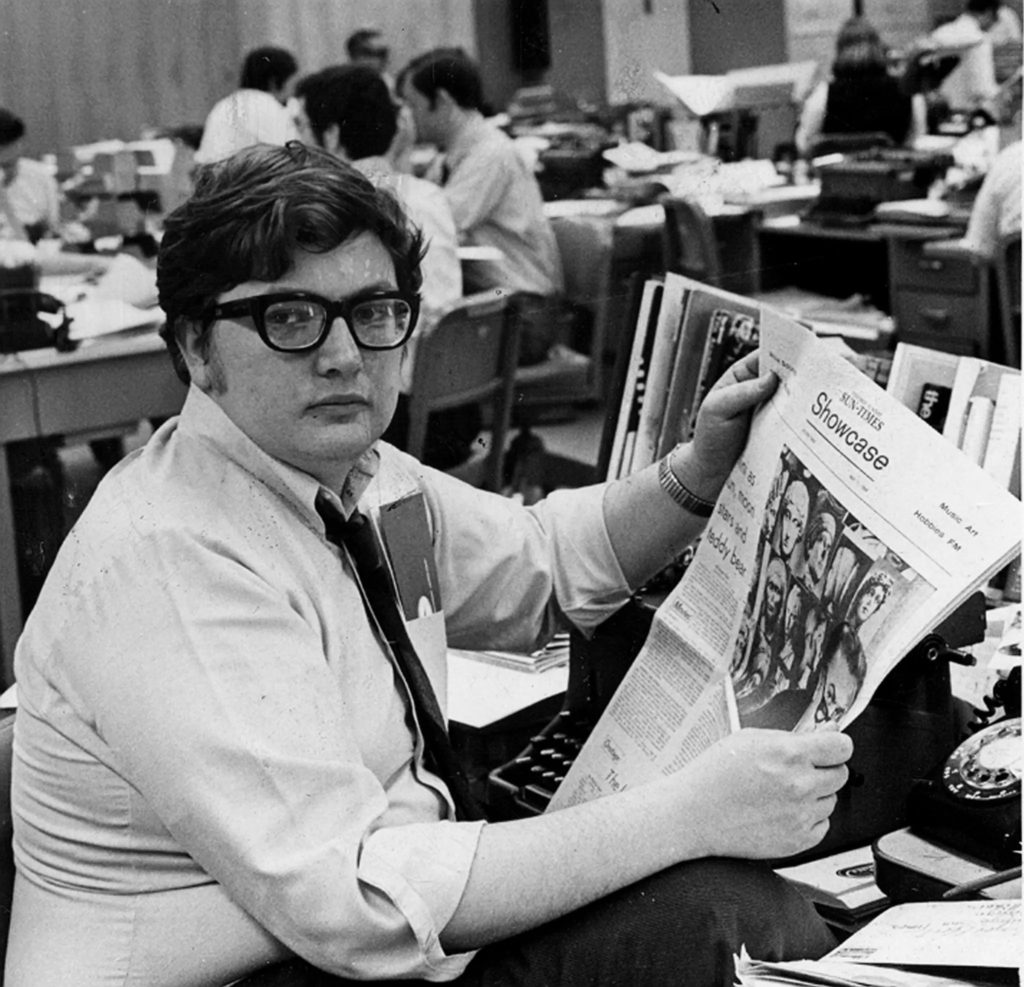Funny Girl, Barbra Streisand, and the Critics
The famed Pauline Kael spent much of her review of Funny Girl in The New Yorker identifying what she called the film’s “weaknesses.”

Roger Ebert, writing in Chicago Sun-Times on October 18, 1968, thought that:
“The film is perhaps the ultimate example of the roadshow musical gone overboard. It is over-produced, over-photographed and over-long. The second half drags badly. The supporting characters are generally wooden.”
According to Richard L. Coe, writing in The Washington Post, Funny Girl was:
“Overdone . . . a long, trippy bore.”
Renata Adler, writing in Barbra Streisand’s hometown newspaper The New York Times on September 28, 1968, found the movie “condescending and patronizing,” the critical meaning of which we can only guess.
Despite all of this critical negativity, Funny Girl was nominated for eight Academy Awards, including Best Picture (which it did not win; the best picture Oscar that year went to the musical Oliver!, which had been nominated for an astounding nineteen Oscars). Of its eight nominations, Funny Girl garnered but one Oscar, for Barbra Streisand as Best Actress. In fact, it was Streisand’s performance that carried the movie, a fact impossible to ignore whatever was the critical opinion of the movie itself.

For example, in the same The New Yorker review in which Pauline Kael itemized the film’s weakness, she wrote this about Barbra Streisand’s performance in Funny Girl:
“A bravura performance. As Fanny Brice, she has the wittiest comic inflections since the comediennes of the 1930s; she makes written dialogue sound like inspired improvisation. Streisand’s triumphant talent rides right over the film’s weaknesses.”
For all of his negativity about Funny Girl as a “total package” in his review, Roger Ebert also wrote that:
“Barbra Streisand is magnificent. She has the best timing since Mae West, and is more fun to watch than anyone since the young Katharine Hepburn. She doesn’t actually sing a song at all; she acts it. She does things with her hands and face that are simply individual; that’s the only way to describe them. They haven’t been done before. She sings, and you’re really happy you’re there . . . That makes the movie itself kind of schizo. It is impossible to praise Miss Streisand too highly, [and] hard to find much to praise about the rest of the film.”
Jan Dawson, writing in the January 1969 edition of The Monthly Film Bulletin, observed:
“The story of the actress whose dramatic rise from rags to riches is accompanied by the discovery that suffering lies on the flip side of success has provided the basis of many an American musical. But [director and producer] William Wyler manages to transcend the clichés of the genre and create – largely through Barbra Streisand’s characterization of Fanny Brice – a dramatic comedy in which the musical numbers illustrate the public aspect of the star’s life without once interrupting the narrative.”
…
Continue reading, only on Patreon!
Become a Patron!Top Robert Greenberg Courses
-
 Mozart In ViennaPrice range: $80.00 through $150.00
Mozart In ViennaPrice range: $80.00 through $150.00 -
 Great Music of the 20th CenturyPrice range: $199.95 through $319.95
Great Music of the 20th CenturyPrice range: $199.95 through $319.95 -
 Understanding the Fundamentals of MusicPrice range: $199.95 through $319.95
Understanding the Fundamentals of MusicPrice range: $199.95 through $319.95 -
 Music as a Mirror of HistoryPrice range: $219.95 through $334.95
Music as a Mirror of HistoryPrice range: $219.95 through $334.95 -
 How to Listen to and Understand Great Music, 3rd EditionPrice range: $349.95 through $599.95
How to Listen to and Understand Great Music, 3rd EditionPrice range: $349.95 through $599.95 -
 Great Masters: Mahler — His Life and MusicPrice range: $89.95 through $169.95
Great Masters: Mahler — His Life and MusicPrice range: $89.95 through $169.95 -
 The Chamber Music of MozartPrice range: $199.95 through $319.95
The Chamber Music of MozartPrice range: $199.95 through $319.95 -
 The ConcertoPrice range: $199.95 through $319.95
The ConcertoPrice range: $199.95 through $319.95 -
 The 30 Greatest Orchestral WorksPrice range: $249.95 through $439.95
The 30 Greatest Orchestral WorksPrice range: $249.95 through $439.95
